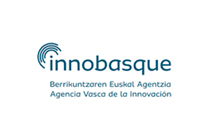 Ponente invitad@: Claudia Peñaloza. Towards a better understanding of language impairment, treatment outcomes and cross-language interaction in bilingual aphasia
Ponente invitad@: Claudia Peñaloza. Towards a better understanding of language impairment, treatment outcomes and cross-language interaction in bilingual aphasia
Claudia Peñaloza. Towards a better understanding of language impairment, treatment outcomes and cross-language interaction in bilingual aphasia
What: Language impairment and recovery in bilingual speakers with aphasia
Where: BCBL Auditorium and Auditorium Zoom room (If you would like to attend to this meeting reserve at info@bcbl.eu)
Who: Claudia Peñaloza. PhD, RyC Researcher; Bilingualism, Language processing, Learning and Recovery Group Cognition and Brain Plasticity Unit, Department of Cognition, Development and Educational Psychology, Institute of Neurosciences, University of Barcelona
When: Thursday, Jan 1st at 12:00 PM noon.
Aphasia is an acquired speech and language disorder that typically follows neural damage to the language processing network. In bilingual speakers, aphasia may lead to varying degrees of impairment and recovery across their two languages making it challenging to accurately assess their deficits after brain injury. Their language recovery is also complex since several factors may modulate individual gains in the treated and the untreated language. Moreover, cross-language interaction can further impact the assessment and treatment in bilinguals with aphasia.
In this talk I will provide an overview of the assessment and current understanding of language impairment in bilinguals with aphasia with a special focus on lexical retrieval deficits. I will discuss the available evidence on the potential outcomes of anomia therapy in bilingual aphasia and the factors that may contribute to individual variation in treatment response. I will further exemplify how cross-language interaction may influence lexical access by hindering or facilitating bilingual language improvement. Finally, I will briefly explain how computational models that accurately simulate impairment and treatment outcomes in bilingual aphasia may help to predict individual response to anomia therapy.








